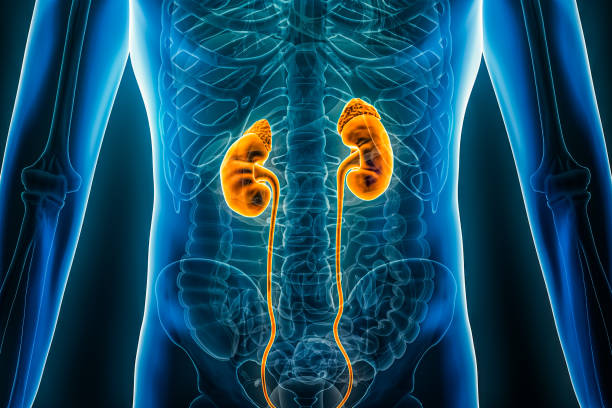Long-term PPI Use and Kidney Function: Evidence, Misconceptions, and Practical Guidance
If you or someone you know takes a PPI (proton pump inhibitor) such as omeprazole or lansoprazole daily, you may have read reports linking long-term PPI use to kidney problems. While there is evidence suggesting a connection, the relationship is complex. Most studies are observational, and the absolute risk is small for many individuals. Understanding the science, recognizing misconceptions, and learning practical ways to monitor and manage reflux can help guide safer choices.
What Are PPIs and Why Are They Commonly Used?
Proton pump inhibitors reduce stomach acid by blocking the final step of acid production in the stomach lining. They are widely prescribed worldwide for conditions including:
- Gastroesophageal reflux disease (GERD)
- Erosive esophagitis
- Peptic ulcer disease
- Prevention of NSAID-induced ulcers
Common PPIs include omeprazole, lansoprazole, esomeprazole, pantoprazole, and rabeprazole. Their effectiveness and generally favorable safety profile explain why long-term use is frequent.
The Evidence Linking PPIs to Kidney Problems
Acute Interstitial Nephritis (AIN)
AIN is an immune-mediated inflammation of the kidney that can be triggered by PPIs. Symptoms may include reduced urine output, fatigue, swelling, and sometimes fever or rash. AIN is often reversible if identified early and the PPI is discontinued.
Acute Kidney Injury (AKI)
Some studies show PPI users have a higher incidence of AKI. This is often related to undiagnosed or prolonged AIN, which can progress to acute kidney impairment if not recognized promptly.
Chronic Kidney Disease (CKD) and Progression
Observational studies suggest that PPI users may have a slightly higher risk of developing CKD or experiencing faster progression if CKD is already present. Relative risk estimates vary, but absolute risk increases are generally modest for most people without other risk factors.
Interpreting the Evidence
The strongest causal evidence exists for PPI-induced AIN. The link to long-term CKD is plausible but not definitively proven. Observational studies cannot eliminate all confounding factors, and individual risk varies.
Potential Mechanisms of Kidney Injury
- Drug-induced AIN: Immune-mediated kidney injury that can become chronic if prolonged
- Repeated or unrecognized AKI episodes: Can accelerate CKD over time
- Electrolyte disturbances (e.g., low magnesium): May indirectly affect kidney and heart health
- Other proposed mechanisms: Altered gut microbiome, changes in proton transport, vascular effects
Who Is Most at Risk?
- Existing CKD or reduced kidney function
- Older age
- Concurrent use of nephrotoxic medications (e.g., NSAIDs, certain antibiotics)
- Previous AKI or AIN episodes
- High cumulative PPI exposure
Those without these risk factors generally have a low absolute risk, but monitoring may still be appropriate.
Deciding Whether to Stop, Taper, or Continue a PPI
Immediate Stop and Medical Attention
Seek urgent care if you experience sudden changes in urine output, swelling, fatigue, fever, or rash, as these may indicate AIN or AKI.
Structured Reassessment
- Review the original indication: Assess whether continued PPI use is necessary
- Consider alternatives: Step down to on-demand therapy, switch to an H2RA, or emphasize lifestyle measures
- Specialist input: Consult if you have severe esophagitis, Barrett's esophagus, or other complications
- Plan for rebound acid: Taper gradually and consider temporary H2RA or antacids to reduce rebound symptoms
Practical Tapering Approaches
- Mild, long-term daily users: Reduce to every-other-day use for 1–2 weeks, then twice weekly before stopping
- Higher-dose or severe symptoms: Reduce dose by half for 1–2 weeks, then step down to on-demand or H2RA
- Severe rebound acid: Short-term H2RA or antacids may help; corticosteroids may be considered under specialist guidance if AIN is diagnosed
Always consult a healthcare professional before adjusting medication.
Monitoring While Continuing PPI Therapy
- Baseline tests: Serum creatinine (to calculate eGFR), electrolytes (magnesium if symptomatic), urinalysis
- Follow-up: Repeat kidney function tests 1–3 months after starting or changing therapy, then periodically (6–12 months) depending on risk factors
- Watch for symptoms: Decreased urine output, swelling, fatigue, fever, rash — these require urgent evaluation
Non-drug Alternatives to Manage Reflux
- Weight loss: Even modest reductions (5–10%) can help
- Meal timing: Avoid late or large meals; smaller, frequent meals help
- Head-of-bed elevation: Raise 6–8 inches to reduce nighttime reflux
- Avoid trigger foods: Chocolate, peppermint, fatty foods, garlic, onion, spicy foods, citrus, tomatoes, coffee, and alcohol
- Limit alcohol and caffeine
- Quit smoking
- Avoid tight clothing around the waist
- Chew sugar-free gum after meals to increase saliva
- Stay upright for 30–60 minutes after eating
Lifestyle changes are particularly useful for mild to moderate symptoms and can complement medication reduction.
Frequently Asked Questions
Will reflux worsen after stopping a PPI? Rebound acid hypersecretion can occur, peaking within 1–4 weeks. Gradual tapering, short-term H2RA, antacids, and lifestyle measures help reduce symptoms.
Can I switch to an H2RA? H2RAs may work for mild or intermittent reflux but are less effective for severe disease. Discuss available options with your clinician.
Does PPI use cause magnesium deficiency? Long-term PPI use may reduce magnesium levels, especially in those taking diuretics or with other risk factors. Symptoms include cramps, fatigue, and heart rhythm changes.
Are PPIs safe in pregnancy? Some PPIs are used when necessary during pregnancy, but decisions should be individualized with your obstetric provider. Lifestyle measures and non-prescription antacids are often first-line for mild symptoms.
How to Talk to Your Clinician
You can use a clear, concise script:
“I have been taking [PPI name and dose] for [duration]. I read that long-term PPI use may affect kidney function. Can we review whether I still need this medication, possible alternatives, and appropriate monitoring?”
Bring a list of medications and recent lab results to facilitate discussion.
Key Takeaways
- Observational studies link long-term PPI use with kidney issues, particularly AIN and possibly CKD
- Strong indications often justify continued PPI use; mild or intermittent symptoms may allow step-down therapy
- High-risk individuals should discuss monitoring or alternatives with their clinician
- Seek immediate medical attention if there are signs of AKI or AIN
